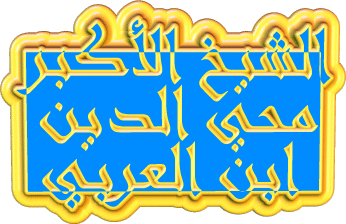The Meccan Revelations - the 3rd Bulaq Edition |
||
| Chapter: | On knowing a person who had realized the abode of breaths and witnessed in it some secrets I mention. | |
 |
 |
|||||||||
Page 215 - from Volume One (Display Image)
In a book or Sunnah, it is attributed to this person, for this name is extended to him, and there is no divine name for him to judge except by the mediation of this name in any way whatsoever. That is why we say that God, Glory be to Him, has hidden the places of His mercy in His torment and vengeance, like the patient who placed in his torment with illness his mercy through him. He atones for sins, so this is mercy in a vengeance, and likewise the one who took revenge on him in carrying out the hadd punishment of killing or beating, then it is a present torment in which there is an inner mercy by which the claim is lifted from him in the home of the hereafter, just as he is in his grace in this world of the blessed name, the deepest of his vengeance. The torment is in it in the hereafter or in the time of repentance, for if a person repents and looks and thinks about the forbidden things he enjoys, those conjured images return to him as a torment. In his grace, the hidden is always the soul of the visible eye, anything he was, so this person when his knowledge was merciful, and the name was the Most Merciful. His intention is a throne, and the station of this person is the innermost of the customs, and it is the wall between the people of happiness and misery. There are men who will be remembered, and they are the ones who were not restricted by a description like Abu Yazid and others. Rather, his station was the innermost of the customs because his knowledge is merciful, and his concern is a throne. The throne is the level of the Most Merciful. ? [ Mercy is the throne of the Divine Self ]This person has mercy on all existing things, with the disobedient and the infidels and others The Almighty said to the master of this station, which is Muhammad, may God s prayers and peace be upon him, when he called upon the people and the people and the disobedient with torment and vengeance. So he forbade praying for them and insulting them and what they hate, and God Almighty revealed to him, and We did not send you except as a mercy to the worlds. He said when they wounded him, O God, guide my people, for they do not know He wants those who lie from other than the People of the Book, and the imitators are from the People of the Book and not others. That is why we said in the right of this person, the owner of this position, that he is merciful to the disobedient and the infidels. The chapter on mercy and from the name of the Most Merciful in the case of the one who is limited and witnessed, not as a matter of revenge and seeking healing does not require the place of this name, so this person does not give him the condition of this person. The Almighty said in the story of Abraham, I fear that a torment from the Most Merciful will catch you. [ The Equatoria of the Throne and the Equatoria of the Blindness ]And whoever this is his station, his knowledge, and this name, the Most Merciful, he looks at him and sees the secrets in taste. What is between the attribution of the equator to the throne and between the affinity of the equator to the blindness, are they the same or different? He knows what the truth has of the epithets of majesty and kindness together between blindness and equator, as it was in blindness and no A Throne is described by ascending over it, then He created the Throne and established Himself over it with the Name Most Gracious. Each one of them is distinguished from its owner by its definition and its reality, just as the blindness above which the air and beneath it the air is distinguished, which is the thin cloud that is carried by the air that is beneath it and above it from the blindness that is above air and what is below air is blindness that is not portable. The Almighty said: Do they not wait for God to come to them in shadows from the clouds? Under it there is air, so the owner of this place gives knowledge of all of that [ The descent of the Lord from the throne to the lowest heaven ]Then the owner of this station also gives from the divine sciences of this kind in the name of the Most Merciful The descent of the Lord to the lowest heaven from the throne, this descending or from blindness, for blindness is only When the question occurred about the name of the Lord, he was asked, Where was our Lord before He created His creation? He said, He was in a blindness, above which there is air and what is below it is air. The name of the implicit was our Lord and He said our Lord descends to heaven This indicates that his descending to the lowest heaven is from that blindness, just as his ascension to the Throne was from that blindness. |
|
|||||||||
 |
 |
|||||||||
| This is the book of the Meccan Revelations, by the Greatest Master Muhyiddin Ibn al-Arabi The pagination is in agreement with the Cairo edition (Dar al-Kutub al-Arabiya al-Kubra) - al-Maymaniya - known as the Standard Edition. Subtitles have been added within square brackets. |
||||||||||




